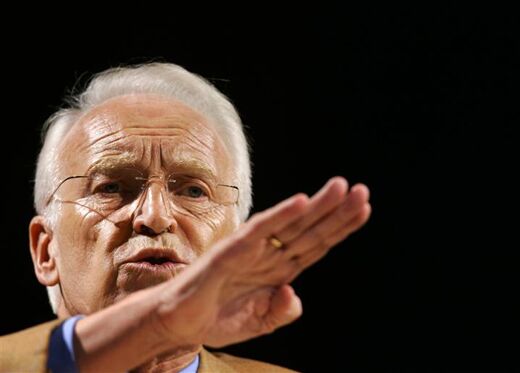
Turkey: Target of Catholic EU Patriotism
As if Pope Benedict xvi’s recent comments about militant Islam hadn’t stirred up enough anger from Muslims, many of Europe’s leaders seem determined to follow in his footsteps. As Muslims around the world have hurled criticism and threats against Europe’s pontifical leader, European Union politicians and religious leaders have rallied to the pope‘s defense. One manifestation of this defense is their demand that Islamic Turkey be immediately excluded from possible EU membership.
On September 22, Edmund Stoiber, Germany’s Bavarian premier and key partner of German Chancellor Angela Merkel, called for the EU to halt accession talks with Turkey due to what he felt was Turkish leaders being too “aggressive” in criticizing Pope Benedict’s speech given one week earlier in Bavaria (Journal of Turkish Weekly,September 23). During that lecture, the pope quoted a 14th-century text which described the religion of Muhammad as “evil and inhuman.”
Joining the general Muslim uproar, some Turkish politicians compared Benedict xvi to Hitler or Mussolini. The Turkish media have been very vocal in saying that the pope’s comments against Islam undermined the harmony between civilizations (ibid.).
Stoiber is one European politician, already strongly against Turkey’s accession to the EU, who is using the current situation to drive the point home. “Turkey is not now in the condition to enter the European Union,” said Stoiber. “Turkey is not Europe and does not belong in Europe.”
Cardinal Cormac Murphy-O’Connor, the leader of 4 million Catholics in England and Wales, echoed the sentiment that Turkey is not culturally part of Europe. “There may be another view that the mixture of cultures is not a good idea” (Times Online, September 21). The former archbishop of Canterbury, Lord George Carey, concurred, saying, “Surely a European community has to be more than economic? It has to have common values and so on.”
According to Assoc. Prof. Dr. Sedat Laciner, head of the Ankara-based International Strategic Research Organization (usak), “many politicians and spiritual leaders in the EU countries think in this way” (Journal of Turkish Weekly, op. cit.).
Laciner points out that, besides Turkey, several other dominantly Muslim European nations are also excluded from the EU. The primary cause he points to is religious discrimination. “[B]oth Mr. Stoiber and the pope are German and this is not accidental. There is a strong Christian anti-Turkish root in Germany,” says Dr. Nilgun Gulcan, another usak member. “They are after Christianity’s leader[ship] again” (ibid.).
“Europe is at a very critical stage,” warns Laciner, “as it was before the Second World War. Now the Turkish and Muslim peoples … can understand better what the European Jewish people felt before and during the Second World War.”
The European Union certainly is at a very critical stage—a turning point. The European Union is moving from a seemingly secular economic and political union, to one united and driven by religion. The wave of support the pope is receiving clearly demonstrates the all-encompassing transnational influence the pope exerts. Time will soon show just how much of a grip the Vatican has on the EU.
